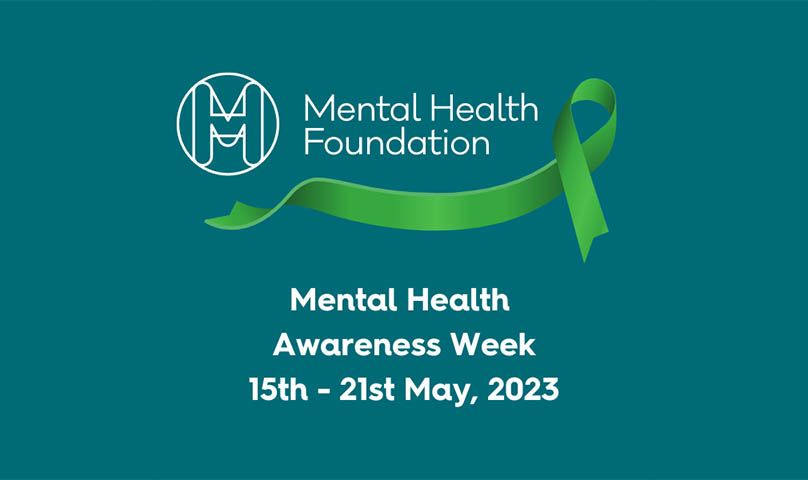Mental Health Awareness Week: Anxiety and Relationships: What does the research say?
Published in Blog by Andrew Balfour on May 18th 2023

Mental Health Awareness Week asks us all to tackle stigma and help people understand and support their mental health. This year, the theme of the week is anxiety.
60% of UK adults experienced feelings of anxiety that interfered with their lives.
The Mental Health Foundation has found that in the last two weeks 60% of UK adults experienced feelings of anxiety that interfered with their lives1. To help tackle this, it is crucial to consider all aspects that contribute to this mental health issue, including our relationships.
Our intimate relationships are a place where we express, understand and manage our wellbeing, mental health concerns and personal distress. Therefore, the quality of our intimate couple relationships and our mental health are intrinsically linked.
Research has shown that improving the quality of the couple relationship is beneficial to improving our mental health, reducing anxiety and increasing our overall happiness and wellbeing.
People who live in distressed and troubled relationships are two-and-a-half times more likely to suffer from anxiety disorders, than those who do not experience such relationship distress.
Anxiety and panic disorders can be linked to relationships distress and marital quality2. People who live in distressed and troubled relationships are two-and-a-half times more likely to suffer from anxiety disorders, than those who do not experience such relationship distress3. Another study showed that the level of hostility and criticism evident during interactions between patients and their partners, was highly predictive of how effective anxiety treatment was likely to be4.
Data from the National Comorbidity Survey Replication demonstrates that marital distress is significantly associated with increased risk of having any concurrent anxiety disorder, particularly social anxiety disorder (SAD), generalized anxiety disorder (GAD), and post-traumatic stress disorder (PTSD)5.
Following the pandemic, elevated levels of psychological distress have been felt, particularly within couples whose ‘fault lines’ were exposed during lockdown. The additional pressures, including home-schooling, having a pre-existing health condition, financial and food insecurity and increased costs of childcare, have all been associated with worsening mental health among parents6.
Four in ten of respondents felt the pandemic had caused additional stress for their children and wider family, and that couples with children were nearly twice as likely to consider splitting up as a result of lockdown.
These findings were echoed by our YouGov survey which found that four in ten of respondents felt the pandemic had caused additional stress for their children and wider family, and that couples with children were nearly twice as likely to consider splitting up as a result of lockdown7.
The emotional trauma and mental health implications of going through lockdown periods are continuing to be felt. The current cost of living crisis has increased these anxieties, and people’s relationships and mental health are suffering greatly. It is crucial that further support is established which seeks to tackle these intersecting issues.
Through couple therapy, partners can identify and address issues within their relationship which may be contributing to their anxiety, such as communication problems, conflict, trauma or trust issues. By providing communication and problem-solving skills, couples can learn to work through their mental health issues together.
Sadly, interventions which aim to treat mental health in the context of relationship distress are only minimally available under the NHS. Research into the intersection between relationship quality and mental health disorders is continuously overlooked in policy circles and professional practice. It is crucial that a new approach to addressing the current mental health crisis is adopted - one which includes an explicit treatment and focus on the couple relationship.
Couple Therapy for Depression
People can ask their GP to refer them to the Couple Therapy for Depression NHS Talking Therapy, where it is available. Tavistock Relationships provides training for NHS staff providing this therapy- see here for more information.
References
- (Mental Health Foundation, 2023).
- (Zaider, 2010), (Stokes, 2015), (Whisman, 2000)
- (Whisman and Uebelacker, 2003)
- (Zinbarg, 2007)
- (Whisman, 2007)
- (Public Health England, 2021)
- (Tavistock Relationships, 2021)

by Andrew Balfour
Chief Executive
Andrew Balfour, Chief Executive of Tavistock Relationships, originally trained as a clinical psychologist at University College London and then as an Adult Psychotherapist at the Tavistock & Portman NHS Trust, whilst in a staff post. He then trained as a Couple Psychotherapist at Tavistock Relationships, where for more than 10 years he was Clinical Director before becoming CEO in 2016. He has many years’ experience of working psychotherapeutically with couples, developing new projects and conducting research.
Come to one of our Open Events
If you'd like to know more about counselling and psychotherapy courses or a career in counselling, come to one of our open events and learn more.

